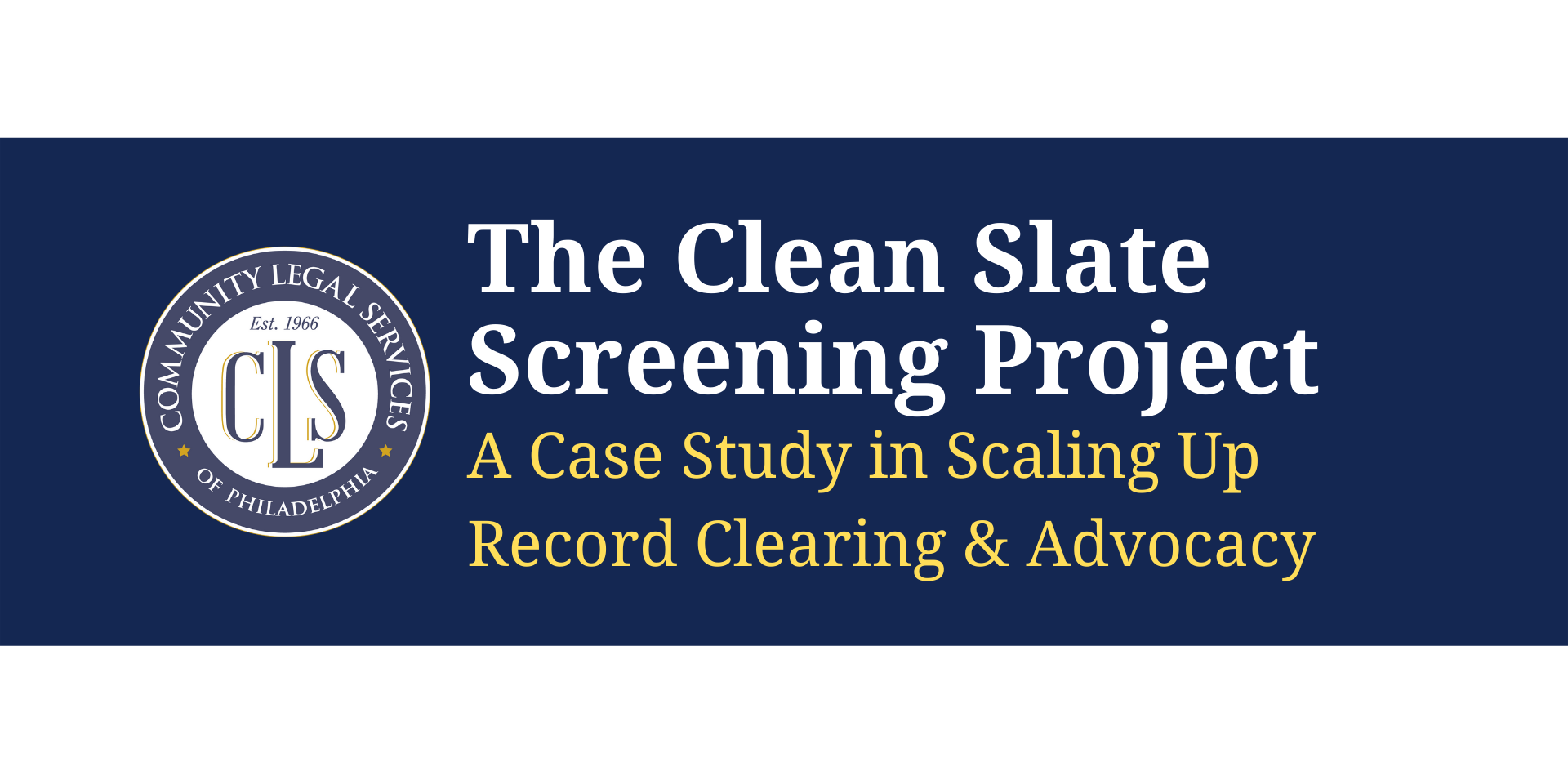Legal services providers are frequently presented with the challenge of communicating complicated and evolving legal advice to large numbers of constituents. The Clean Slate Screening Project (CSSP), developed by Philadelphia-based Community Legal Services (CLS) in partnership with the Pennsylvania Bar Association (PBA), was conceived as a solution to that predicament when in 2018, the state became the first in the nation to pass the innovative “Clean Slate” law and tremendously expand record clearing opportunities for millions.
Under this new law, Pennsylvania began “sealing” eligible dropped charges and minor convictions through an automated process without the need to file expensive or time-consuming petitions in court. Given recent research proving the existence of the “second chance gap”, or the disparity between Americans eligible for record clearing and those who are actually able to access that relief, it would be difficult to overestimate the positive impact of this new law. As of the writing of this report, more than 37 million cases – or more than 50 million charges- have been processed for sealing. In practical terms, that’s millions of criminal records no longer able to be viewed or considered by the vast majority of prospective employers, schools and training programs, licensing boards, landlords, and the general public.
However, the sealing of a record is not accompanied by a notification system, meaning that an individual may have no idea that they may be eligible for sealing or that their record may have in fact already been hidden from view. To that end, the organizers of CSSP needed to think creatively about how to share information about this with the broader public, and in some cases, give individualized information. With that goal in mind, CSSP took advantage of technology to reach out to more than 8,000 individuals with personalized advice over the course of a year and a half.
The benefits of the CSSP were broader than the impressive scope of individual contacts. In conjunction with a targeted online campaign, the project built up awareness about record clearing rights across the state. It was instrumental in developing communications with tens of thousands of Pennsylvanians through an e-mail list that continues to provide real-time updates about changes in the law and has been instrumental in recruiting advocates for further expansion of criminal record clearing opportunities. The CSSP laid the groundwork for the creation of an automated tool to pull individuals’ criminal record and give boilerplate advice. Still in development, this evolution of the CSSP has the potential to help an infinite number of Pennsylvanians.
Much of what made CSSP a success could easily be transferred to other locations or issue areas. With that in mind, this report describes the CSSP project in detail and shares lessons learned that may be useful to other programs needing to quickly disseminate complex legal information.






